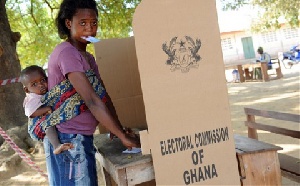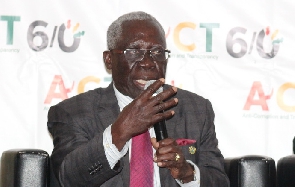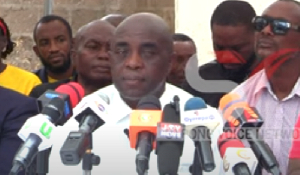There are a number of lists, besides the voters register, from which information is required to be entered onto the ‘modified’ version of the statement of poll, otherwise known as ‘Pink’ sheet.
These are Absentee Voters List, Transfer Voters List and the Proxy Voters List.
As described in C.I. 94, the Absentee Voters List contains the names of all those who are not allowed to vote at a particular polling station on the day of the elections, either because they voted during the Special Voting (those on Special Voters List) or they have transferred their votes to other constituencies (those on the Transfer Voters List).
The above appears very clear until you find out that the ‘Pink’ sheet also requires the entry of number of names on the Transfer Voters List, which one would have thought is a subset of the Absentee Voters List. This is where the confusion resides.
Reading the CI provisions, however, there are actually two types of Transfer Voters List: those transferring out and those transferring in. It appears the number to be entered on the ‘Pink’ sheet (besides those captured in the Absentee Voters List) relates to those who have transferred in. The CI does not present this clear distinction, posing an inherent risk of Presiding officers entering the wrong figures.
Another list to be compiled is the Proxy Voters List. This is to contain the names of those who will not be able to vote on Polling Day, either due to ill-health or some other reason. These individuals are expected to apply to use a proxy 42 days before the elections. Even though the CI provides for political parties to be given this list, the time within which the EC is to supply this list to the parties is not specified.
On the face of the ‘Pink’ sheet, no reason is given why the information from the lists mentioned above is required. There is also no indication of their relationship to the Voters Register. Thus if the intention of entering the number of voters on each list onto the ‘Pink’ sheet is to detect fraud, there is no guidance on how to use it to make any determination.
The confusion mounts even further when it comes to accounting for number of ballots issued. The form asks for the number of ballots issued to those on the Register and those on the Proxy List to be recorded. Does this mean that proxy voters are listed outside the final Register or they are also a subset of the Register? The last source of confusion is due to the fact that the ‘Pink’ sheet also asks for the number of spoilt ballots to be recorded.
On its own, this constitutes no problem, but considering that spoilt ballots are originally issued to voters, and are returned for replacement only upon making a mistake, the risk exists that their numbers could also be erroneously recorded within the number of ballots issued to those on the Register.
Reviewing the provisions in the CI regarding the Voters Register, it appears that even as it progresses towards a certified final copy, other changes (via the lists) may still be ongoing. This will make it difficult for any interested party to track the changes and to know the finalised figures for the polling stations.
Even if they do know, it would be very late with a few days left to Polling Day. To prevent anyone seeing this as an opportunity to perpetrate fraud, the EC should:
1. Clarify the relationship between the Register and the other lists;
2. Indicate whether the names on the various lists are also contained in the Register or outside it; and
3. Indicate the formula by which to compute the number against which ‘over-voting’, of the two types (i.e. against numbers of registered voters and issued ballots), is to be determined.
Parliamentarians, as the people’s representatives, should endeavour to scrutinise this Constitutional Instrument (CI) carefully before it matures. This will forestall the repeat of the issues that attended the 2012 elections. We cannot run our Republic effectively whilst ignoring problems that keep reoccurring.













